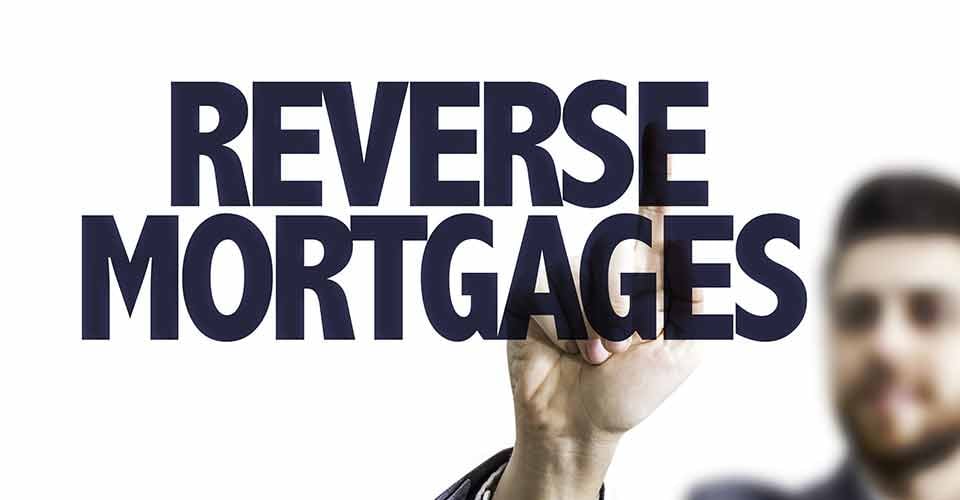Why Reverse Mortgages are Bank-Failure Proof
If you are considering a reverse mortgage and are concerned about whether or not they are FDIC-insured, there is good news.
Reverse mortgages are not FDIC-insured, which means they are not affected by banking failures. This can be reassuring for those who may have concerns about the current state of the banking industry.
Instead of FDIC insurance, reverse mortgages are guaranteed by the U.S. Department of Housing and Urban Development (HUD). HUD ensures that reverse mortgage borrowers have access to their full line of credit, regardless of any banking failures or financial turmoil that may occur.
This means that even if the lender of your reverse mortgage were to experience difficulties, you would still have access to the full amount of your reverse mortgage line of credit.
If you're considering a reverse mortgage, you may be concerned about recent interest rate fluctuations. Rates have been increasing rapidly, which could decrease the amount of funds available to borrowers.
However, there was a temporary respite when Signature Bank failed last week, causing interest rates to drop. The question you may be asking yourself now is whether this decrease will be short-lived or if rates will continue to fall.
Additionally, you may wonder how much safer reverse mortgages are compared to banking products insured by the FDIC, given the current state of the banking industry. Unfortunately, no one can predict the future with certainty, so it's challenging to say how things will develop.
Despite this uncertainty, it's worth noting that reverse mortgages are not FDIC-insured, which means they are not affected by banking failures.
Recent increase in reverse mortgage benefits
Compared to Home Equity Lines of Credit and other options, a reverse mortgage often makes more sense.
If you've received a proposal in the past but weren't happy with the amount you received because of high rates, now is a good time to get another quote. Checking only takes a few minutes, and you might be pleasantly surprised by the improvement.
By keeping an eye on the rates, you can ensure that you get the most out of your reverse mortgage Principal Limit, which is locked at application but can decrease at closing if rates drop. Ultimately, the benefits of a reverse mortgage can be significant, so it's worth considering carefully.
Reverse mortgages line of credit cannot be frozen
When a borrower takes out a traditional line of credit from their bank, such as a Home Equity Line of Credit (HELOC), the availability of funds is not guaranteed.
Similar to a reverse mortgage, the line of credit is adjustable-rate, meaning that the interest rate can change over time.
However, there are some important differences between a HELOC and a reverse mortgage that borrowers should be aware of.
Unlike a reverse mortgage, where the borrower receives a lump sum or regular payments from the lender, a HELOC is a revolving line of credit that allows the borrower to access funds as needed, up to a certain limit.
While this can be useful for borrowers who may not need all the funds at once, it also means that the bank can close the line of credit at any time, for any reason.
In contrast, with a reverse mortgage, the funds are guaranteed to be available to the borrower, as long as they meet the loan requirements.
Additionally, the reverse mortgage Principal Limit is locked at application, meaning that the borrower can't lose access to their remaining funds due to changes in the market or the lender's policies.
Many borrowers believed that they could rely on their HELOC as a safety net, only to find that the bank had frozen their line of credit or required them to re-qualify for the loan, even if they had never missed a payment.
This was especially common after the financial crisis of 2008-2009, when many banks tightened their lending standards and required borrowers to go through new underwriting to keep their lines of credit open.
With a reverse mortgage, borrowers can have peace of mind knowing that they won't be caught off guard by sudden changes in the lending market or the lender's policies.
This can be particularly important for seniors who are relying on their home equity to supplement their retirement income or pay for expenses like medical bills or home repairs.

HELOCs payments can skyrocket
With a reverse mortgage, you can enjoy the benefits of accessing your home equity without having to make any monthly loan payments, as long as you continue to live in the home as your primary residence and comply with the loan terms.
This means paying your property taxes, insurance, and any other property charges on time, as well as maintaining the home in reasonable condition.
A Home Equity Line of Credit (HELOC) typically has a draw period of ten years during which you only have to make interest payments. This can be advantageous as your payments are low during this time.
However, unless you make additional payments toward the principal, your balance will remain the same. Once the draw period ends, the loan enters the repayment phase, and you can no longer make any more draws from the line.
During the repayment phase, the loan becomes fully amortized, meaning that the payments will include both principal and interest, and you will need to pay off the entire loan balance by the end of the remaining term.
This can be a shock to many borrowers, as their payments can rise significantly compared to the interest-only payments during the draw period. Some borrowers may find that their payments increase two to three times the previous amount.
With a HELOC, you may not have access to the line of credit for the remainder of the loan term, which can be 15 or 20 years or longer, depending on the terms of the loan.
This means that you won't be able to draw any more funds, even if you have unused funds available in your line of credit.
With a reverse mortgage, you can continue to access your remaining funds for as long as you meet the loan requirements, even if the Principal Limit decreases over time.
Additionally, the loan is designed to be repaid when the borrower sells the home or passes away, so you don't need to worry about making monthly payments or repaying the loan during your lifetime.
You should refinance your HELOC to a HECM (Reverse Mortgage)
If you're a senior on a fixed budget, refinancing your Home Equity Line of Credit (HELOC) with another loan may not be the best option for you.
While this may work for younger borrowers, older adults who are no longer earning income may find it challenging to qualify for a new loan based on conventional underwriting guidelines.
Furthermore, as more banks rely on Federal Deposit Insurance Corporation (FDIC) insurance to bail them out, borrowers' full exposure to the risks is yet to be seen.
To protect yourself and your finances, now is an excellent time to consider securing funds that don't rely on your bank and grow on the unused portion of your line.
This is where a Home Equity Conversion Mortgage (HECM) comes in handy. A HECM is a loan guaranteed by the full faith and credit of the US government, providing borrowers with peace of mind and financial protection.
Unlike a HELOC, a HECM doesn't require repayments as long as you continue living in your home as your primary residence, pay your taxes, insurance, and other property charges on time, and maintain your home in reasonable condition.
Therefore, if you have a HELOC, it's worth considering refinancing to a HECM to enjoy the security and benefits it provides.
Eligibility requirements for a HECM
To be eligible for a Home Equity Conversion Mortgage (HECM) reverse mortgage, you must meet the following personal requirements:
-
All borrowers listed on the title of the home must be aged 62 or older. The older you are, the more funds you can receive from the reverse mortgage.
-
The home must be your primary residence for the duration of the reverse mortgage. Vacation homes or rental properties are not eligible.
-
You must either own your home outright or have at least 50% equity in your home. If you still have an existing mortgage, you may still be eligible for a reverse mortgage. The reverse mortgage funds will first pay off your mortgage and any other eligible existing liens before you can use the remaining funds.
-
You can meet the eligibility requirement by refinancing existing debts with a reverse mortgage, which can help you improve your monthly cash flow.
- Before applying for a reverse mortgage, you must meet with a Department of Housing and Urban Development (HUD)-approved reverse mortgage counselor. The counselor will explain how the reverse mortgage works, associated costs, and loan terms. This counseling session is to ensure that potential borrowers fully understand and are comfortable with the reverse mortgage process.
Pros and cons of a HECM
A reverse mortgage can offer several advantages for seniors looking to supplement their income during retirement.
Firstly, it allows them to better manage expenses, particularly in the case of significant income reduction when they retire, by providing a way to pay bills without monthly mortgage payments.
Additionally, it can enable seniors to age in place, stay near friends and family, and potentially save money on moving costs.
The income from a reverse mortgage is also not taxable, and borrowers are protected if the balance exceeds their home's value, as the lender cannot make claims against other assets or heirs. Furthermore, heirs have options in the case of repayment or settling the loan.
However, there are also several cons to consider, such as the costs associated with the reverse mortgage, including lender fees, FHA insurance charges, and closing costs.
Interest on a reverse mortgage cannot be deducted from taxes until the loan is paid off, and there is a risk of inadvertently violating asset restrictions for certain programs.
Failure to keep up with property taxes, insurance, or HOA fees can lead to foreclosure, and changes in status can impact reverse mortgage options.
Bottom Line
Reverse mortgages are a viable option for seniors looking to access their home equity without the risk of being impacted by bank failures. Unlike other banking products, reverse mortgages are not FDIC-insured, which means they are not affected by banking failures.
Instead, they are guaranteed by the U.S. Department of Housing and Urban Development (HUD), providing borrowers with access to their full line of credit, regardless of external financial circumstances.
While interest rates may fluctuate, borrowers have the ability to lock in their Principal Limit at the time of application. Regularly checking for new quotes and exploring options can help ensure you are getting the best possible terms for your reverse mortgage.
At MakeFloridaYourHome, we specialize in providing our clients with the information and guidance they need to make informed decisions about their financial future.
Our team of experienced professionals can help you explore your options, get quotes, and find the best possible terms for your reverse mortgage. With MakeFloridaYourHome, you can trust that you're working with a reputable and reliable partner who has your best interests at heart.
Don't wait to start exploring your options for a bank-failure proof way to access your home equity. Contact MakeFloridaYourHome today to learn more about how a reverse mortgage can benefit you and your financial future.
With over 50 years of mortgage industry experience, we are here to help you achieve the American dream of owning a home. We strive to provide the best education before, during, and after you buy a home. Our advice is based on experience with Phil Ganz and Team closing over One billion dollars and helping countless families.

About Author - Phil Ganz
Phil Ganz has over 20+ years of experience in the residential financing space. With over a billion dollars of funded loans, Phil helps homebuyers configure the perfect mortgage plan. Whether it's your first home, a complex multiple-property purchase, or anything in between, Phil has the experience to help you achieve your goals.


 By
By  Edited by
Edited by 






